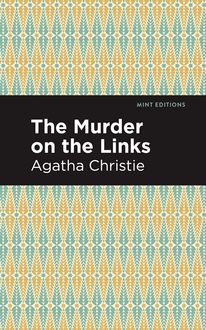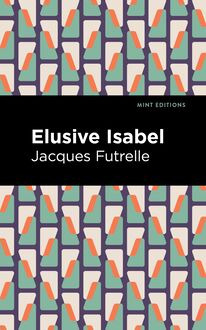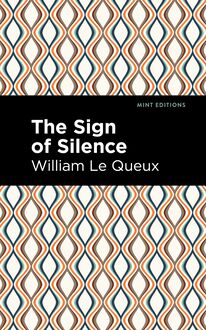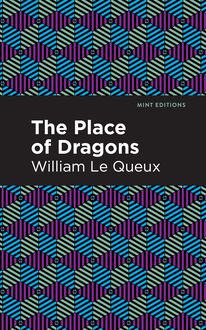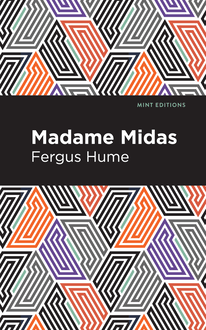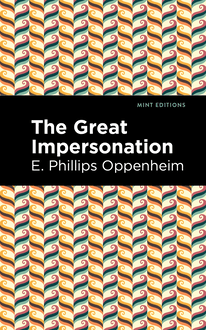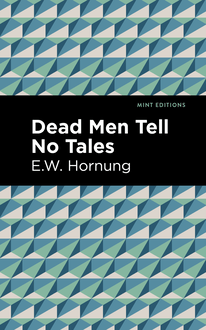-
 Univers
Univers
-
 Ebooks
Ebooks
-
 Livres audio
Livres audio
-
 Presse
Presse
-
 Podcasts
Podcasts
-
 BD
BD
-
 Documents
Documents
-
- Cours
- Révisions
- Ressources pédagogiques
- Sciences de l’éducation
- Manuels scolaires
- Langues
- Travaux de classe
- Annales de BEP
- Etudes supérieures
- Maternelle et primaire
- Fiches de lecture
- Orientation scolaire
- Méthodologie
- Corrigés de devoir
- Annales d’examens et concours
- Annales du bac
- Annales du brevet
- Rapports de stage
La lecture à portée de main
Vous pourrez modifier la taille du texte de cet ouvrage
Découvre YouScribe en t'inscrivant gratuitement
Je m'inscrisDécouvre YouScribe en t'inscrivant gratuitement
Je m'inscrisEn savoir plus
Vous pourrez modifier la taille du texte de cet ouvrage
En savoir plus

Description
The Thinking Machine (1907) is a short story collection by Jacques Futrelle. Published at the height of his career as a leading popular detective and science fiction writer, The Thinking Machine collects stories that originally appeared in such publications as The Saturday Evening Post and the Boston American. Celebrated for his brisk storytelling and mastery of suspense, Jacques Futrelle was lost at sea on April 15, 1912 while returning from Europe on the HMS Titanic. His wife, who survived the disaster, had his last book dedicated to “the heroes of the Titanic.” Professor Augustus S. F. X Van Dusen, Ph.D., LL.D., F.R.S., M.D., M.D.S is a man whose intellect is as exhaustive as his name. Having learned the game of chess just hours before, he defeated grandmaster Tchaichowsky using logic and reason alone, earning himself the nickname “The Thinking Machine.” Ever since that fateful day, Van Dusen, with the help of his trusted companion Hutchinson Hatch, is called to solve crimes, complete puzzles, and face challenges no normal man could possibly endure. In “The Problem of Cell 13,” Van Dusen argues that no feat is impossible when the human mind is involved. To prove his theory, he endeavors to escape from a notoriously brutal prison in just one week’s time. Presented alongside six other stories of mystery and adventure, “The Problem of Cell 13” stands out as one of the greatest detective and suspense tales of all time. With a beautifully designed cover and professionally typeset manuscript, this edition of Jacques Futrelle’s The Thinking Machine is a classic of American detective fiction reimagined for modern readers.
Sujets
Informations
| Publié par | Mint Editions |
| Date de parution | 16 novembre 2021 |
| Nombre de lectures | 0 |
| EAN13 | 9781513223346 |
| Langue | English |
Informations légales : prix de location à la page 0,1000€. Cette information est donnée uniquement à titre indicatif conformément à la législation en vigueur.
Extrait
The Thinking Machine
Jacques Futrelle
The Thinking Machine was first published in 1907.
This edition published by Mint Editions 2021.
ISBN 9781513224947 | E-ISBN 9781513223346
Published by Mint Editions®
minteditionbooks.com
Publishing Director: Jennifer Newens
Design & Production: Rachel Lopez Metzger
Project Manager: Micaela Clark
Typesetting: Westchester Publishing Services
C ONTENTS “T HE T HINKING M ACHINE ” M Y F IRST E XPERIENCE WITH THE G REAT L OGICIAN A P IECE OF S TRING P ROBLEM OF THE P ERFECT A LIBI P ROBLEM OF THE S TOLEN B ANK N OTES P ROBLEM OF C ONVICT N O. 97 T HE F IRST P ROBLEM P ROBLEM OF THE C RYSTAL G AZER F IVE M ILLIONS BY W IRELESS P ROBLEM OF THE G REEN E YED M ONSTER P ROBLEM OF THE H IDDEN M ILLION K IDNAPPED B ABY B LAKE, M ILLIONAIRE P ROBLEM OF THE M ISSING N ECKLACE P ROBLEM OF THE M OTOR B OAT M YSTERY OF THE R ALSTON B ANK B URGLARY P ROBLEM OF THE O PERA B OX P ROBLEM OF THE C ROSS M ARK P ROBLEM OF THE B ROKEN B RACELET P ROBLEM OF THE L OST R ADIUM P ROBLEM OF THE S TOLEN R UBENS P ROBLEM OF THE S OUVENIR C ARDS P ROBLEM OF THE S UPERFLUOUS F INGER T HE C ASE OF THE S CIENTIFIC M URDERER P ROBLEM OF THE D ESERTED H OUSE M YSTERY OF THE F ATAL C IPHER M YSTERY OF THE F LAMING P HANTOM P ROBLEM OF THE G HOST W OMAN M YSTERY OF THE G OLDEN D AGGER T HE G REAT A UTO M YSTERY T HE G RINNING G OD M YSTERY OF THE G RIP OF D EATH T HE H AUNTED B ELL T HE J ACKDAW P ROBLEM OF THE K NOTTED C ORD M YSTERY OF THE M AN W HO WAS L OST T HE M YSTERY OF A S TUDIO P ROBLEM OF THE O RGAN G RINDER T HE P HANTOM M OTOR P ROBLEM OF THE P RIVATE C OMPARTMENT T HE P ROBLEM OF THE A UTO C AB P ROBLEM OF THE R ED R OSE T HE R OSWELL T IARA M YSTERY OF THE S CARLET T HREAD T HE S ILVER B OX T HE T HREE O VERCOATS T HE T RAGEDY OF THE L IFE R AFT T HE C HASE OF THE G OLDEN P LATE P ART I . T HE B URGLAR AND THE G IRL I II III IV V VI VII VIII P ART II . T HE G IRL AND THE P LATE I II III IV V VI VII VIII P ART III . T HE T HINKING M ACHINE I II III IV V VI VII VIII T HE P ROBLEM OF C ELL 13 P ROBLEM OF THE V ANISHING M AN P ROBLEM OF THE I NTERRUPTED W IRELESS
“T HE T HINKING M ACHINE ”
It was absolutely impossible. Twenty-five chess masters from the world at large, foregathered in Boston for the annual championships, unanimously declared it impossible, and unanimity on any given point is an unusual mental condition for chess masters. Not one would concede for an instant that it was within the range of human achievement. Some grew red in the face as they argued it, others smiled loftily and were silent; still others dismissed the matter in a word as wholly absurd.
A casual remark by the distinguished scientist and logician, Professor Augustus S. F. X. Van Dusen, provoked the discussion. He had, in the past, aroused bitter disputes by some chance remark; in fact had been once a sort of controversial centre of the sciences. It had been due to his modest announcement of a startling and unorthodox hypothesis that he had been invited to vacate the chair of Philosophy in a great university. Later that university had felt honoured when he accepted its degree of LL. D.
For a score of years, educational and scientific institutions of the world had amused themselves by crowding degrees upon him. He had initials that stood for things he couldn’t pronounce; degrees from France, England, Russia, Germany, Italy, Sweden and Spain. These were expressed recognition of the fact that his was the foremost brain in the sciences. The imprint of his crabbed personality lay heavily on half a dozen of its branches. Finally there came a time when argument was respectfully silent in the face of one of his conclusions.
The remark which had arrayed the chess masters of the world into so formidable and unanimous a dissent was made by Professor Van Dusen in the presence of three other gentlemen of note. One of these, Dr. Charles Elbert, happened to be a chess enthusiast.
“Chess is a shameless perversion of the functions of the brain,” was Professor Van Dusen’s declaration in his perpetually irritated voice. “It is a sheer waste of effort, greater because it is possibly the most difficult of all fixed abstract problems. Of course logic will solve it. Logic will solve any problem—not most of them but any problem. A thorough understanding of its rules would enable anyone to defeat your greatest chess players. It would be inevitable, just as inevitable as that two and two make four, not sometimes but all the time. I don’t know chess because I never do useless things, but I could take a few hours of competent instruction and defeat a man who has devoted his life to it. His mind is cramped; bound down to the logic of chess. Mine is not; mine employs logic in its widest scope.”
Dr. Elbert shook his head vigorously. “It is impossible,” he asserted.
“Nothing is impossible,” snapped the scientist. “The human mind can do anything. It is all we have to lift us above the brute creation. For Heaven’s sake leave us that.”
The aggressive tone, the uncompromising egotism brought a flush to Dr. Elbert’s face. Professor Van Dusen affected many persons that way, particularly those fellow savants who, themselves men of distinction, had ideas of their own.
“Do you know the purposes of chess? Its countless combinations?” asked Dr. Elbert.
“No,” was the crabbed reply. “I know nothing whatever of the game beyond the general purpose which, I understand to be, to move certain pieces in certain directions to stop an opponent from moving his King. Is that correct?”
“Yes,” said Dr. Elbert slowly, “but I never heard it stated just that way before.”
“Then, if that is correct, I maintain that the true logician can defeat the chess expert by the pure mechanical rules of logic. I’ll take a few hours sometime, acquaint myself with the moves of the pieces, and defeat you to convince you.”
Professor Van Dusen glared savagely into the eyes of Dr. Elbert.
“Not me,” said Dr. Elbert. “You say anyone—you for instance, might defeat the greatest chess player. Would you be willing to meet the greatest chess player after you ‘acquaint’ yourself with the game?”
“Certainly,” said the scientist. “I have frequently found it necessary to make a fool of myself to convince people. I’ll do it again.”
This, then, was the acrimonious beginning of the discussion which aroused chess masters and brought open dissent from eminent men who had not dared for years to dispute any assertion by the distinguished Professor Van Dusen. It was arranged that at the conclusion of the championships Professor Van Dusen should meet the winner. This happened to be Tschaikowsky, the Russian, who had been champion for half a dozen years.
After this expected result of the tournament Hillsbury, a noted American master, spent a morning with Professor Van Dusen in the latter’s modest apartments on Beacon Hill. He left there with a sadly puzzled face; that afternoon Professor Van Dusen met the Russian champion. The newspapers had said a great deal about the affair and hundreds were present to witness the game.
There was a little murmur of astonishment when Professor Van Dusen appeared. He was slight, almost childlike in body, and his thin shoulders seemed to droop beneath the weight of his enormous head. He wore a number eight hat. His brow rose straight and domelike and a heavy shock of long, yellow hair gave him almost a grotesque appearance. The eyes were narrow slits of blue squinting eternally through thick spectacles; the face was small, clean shaven, drawn and white with the pallor of the student. His lips made a perfectly straight line. His hands were remarkable for their whiteness, their flexibility, and for the length of the slender fingers. One glance showed that physical development had never entered into the schedule of the scientist’s fifty years of life.
The Russian smiled as he sat down at the chess table. He felt that he was humouring a crank. The other masters were grouped near by, curiously expectant. Professor Van Dusen began the game, opening with a Queen’s gambit. At his fifth move, made without the slightest hesitation, the smile left the Russian’s face. At the tenth, the masters grew intensely eager. The Russian champion was playing for honour now. Professor Van Dusen’s fourteenth move was King’s castle to Queen’s four.
“Check,” he announced.
After a long study of the board the Russian protected his King with a Knight. Professor Van Dusen noted the play then leaned back in his chair with finger tips pressed together. His eyes left the board and dreamily studied the ceiling. For at least ten minutes there was no sound, no movement, then:
“Mate in fifteen moves,” he said quietly.
There was a quick gasp of astonishment. It took the practised eyes of the masters several minutes to verify the announcement. But the Russian champion saw and leaned back in his chair a little white and dazed. He was not astonished; he was helplessly floundering in a maze of incomprehensible things. Suddenly he arose and grasped the slender hand of his conqueror.
“You have never played chess before?” he asked.
“Never.”
“Mon Dieu! You are not a man; you are a brain—a machine—a thinking machine.”
“It’s a child’s game,” said the scientist abruptly. There was no note of exultation in his voice; it was still the irritable, impersonal tone which was habitual.
This, then, was Professor Augustus S. F. X. Van Dusen, Ph. D., LL. D., F. R. S., M. D., etc., etc., etc. This is how he came to be known to the world at large as The Thinking Machine. The Russian’s phrase had been applied to the scientist as a title by a newspaper reporter, Hutchinson Hatch. It had stuck.
M Y F IRST E XPERIENCE WITH THE G REAT L OGICIAN
It was once my good fortune to meet in person Professor Augustus S. F. X. Van Dusen, Ph. D., LL. D., F. R. S., M. D., etc. The meeting came about through a singular happening, which was as mystifying as it was dangerous to me—he saved my life in fact; a
-
 Univers
Univers
-
 Ebooks
Ebooks
-
 Livres audio
Livres audio
-
 Presse
Presse
-
 Podcasts
Podcasts
-
 BD
BD
-
 Documents
Documents
-
Jeunesse
-
Littérature
-
Ressources professionnelles
-
Santé et bien-être
-
Savoirs
-
Education
-
Loisirs et hobbies
-
Art, musique et cinéma
-
Actualité et débat de société
-
Jeunesse
-
Littérature
-
Ressources professionnelles
-
Santé et bien-être
-
Savoirs
-
Education
-
Loisirs et hobbies
-
Art, musique et cinéma
-
Actualité et débat de société
-
Actualités
-
Lifestyle
-
Presse jeunesse
-
Presse professionnelle
-
Pratique
-
Presse sportive
-
Presse internationale
-
Culture & Médias
-
Action et Aventures
-
Science-fiction et Fantasy
-
Société
-
Jeunesse
-
Littérature
-
Ressources professionnelles
-
Santé et bien-être
-
Savoirs
-
Education
-
Loisirs et hobbies
-
Art, musique et cinéma
-
Actualité et débat de société
- Cours
- Révisions
- Ressources pédagogiques
- Sciences de l’éducation
- Manuels scolaires
- Langues
- Travaux de classe
- Annales de BEP
- Etudes supérieures
- Maternelle et primaire
- Fiches de lecture
- Orientation scolaire
- Méthodologie
- Corrigés de devoir
- Annales d’examens et concours
- Annales du bac
- Annales du brevet
- Rapports de stage
